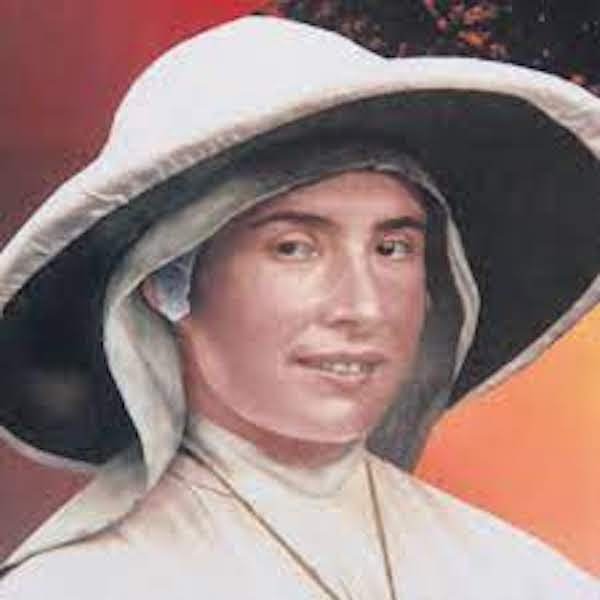One of the joys any country rejoices in is having a canonised saint from their land. It elicits a certain reassurance that if this saint who came from where I come from and who looks like I do made it to the altars, then so can I.
In the region of East Africa, the Martyrs of Uganda stand large as our elder brothers in the faith – a faith brought to these lands by European missionaries. One other missionary who came to Kenya when she was 23 is Blessed Irene Stefani Nyaatha. She was a Consolata Sister who was beatified in Kenya on 23rd May 2015.
Born Aurelia Jacob Mercede, she professed her religious vows on 29th January 1914, and on 28th December the same year, she came to Kenya settling in the then Apostolic Vicariate of Nyeri (in central Kenya). During the 1st World War, she served as a Red Cross nurse in the military hospitals both in Kenya and Tanzania. At the end of the War, she returned to the Mission in Gikondi area of Nyeri where she gave herself unsparingly until her death at the age of 39 on 31st October 1930 (thus her feast day today).
One of her shining virtues that lay members of the Church can learn from her life is her charity and indefatigable apostolic zeal. The sick people and all the inhabitants of Gikondi, who always saw her coming with a smile on her lips, open to help and love everyone, soon nicknamed Sister Irene “Nyaatha”, which means “Mother of mercy”. As one of those who witnessed her life testified, “We have believed her word because we have touched her love”.
The tough, dusty, brown leather boots she wore - the “boots of glory” – are the silent witness of the interminable walks and runs under any kind of weather, at any time of the day or night Sister Irene did in her life to reach and help the people she wanted to save under any kind of weather, at any time of the day or night. A tireless evangeliser, Sister Irene did not miss a single chance to meet and help a person. Perhaps one of the more edifying events in her life was the case of Adhiambo. It took place in Kilwa in Southern Tanzania in 1917. There was a British military camp there and Sr. Irene had moved there with Fr. Benenetto and Sr. Kristina to take care of the sick members of the Carrier Corps. She undertook the task of catechising and baptizing the conscripts along with her nursing work. Many died and since there was no possibility of burial, the bodies would be taken to the beach at low tide so that when the tide went out the bodies would be swept off to the sea.

There was a patient Bl. Irene was preparing for baptism, but one morning when she reported for work, she did not find him. “Where is Adhiambo?” she asked. “He died and has been taken to the beach” was the answer. She did not waste time. She went running to the beach, twenty minutes away. She ran along the beach turning the dead bodies over, some already starting to decay in the 45 degrees sun until she found Adhiambo, still breathing. She carried him back to camp and she took care of him until he regained consciousness and she baptised him. By this time, she was totally exhausted and the following day Adhiambo died and was finally buried at sea.
When Sr. Kristina heard the story, she asked Sr. Irene, “…where did you find Adhiambo in that pile of corpses? On top or at the bottom?”
“At the bottom” Sr. Irene replied.
“You mean you were able to turn around all those smelling and rotting corpses?”
“I do not even understand it myself” Bl. Irene replied, “I was only thinking of the salvation of his soul.”
Adhiambo is one of many hundreds that Bl. Irene instructed and baptized.
In our own way, there with our families at home, with our friends at the club, with our colleagues in the office or our classmates in university, with our neighbours there where we live, we too can live the same apostolic zeal that Bl. Irene burned with all those years ago.
“Those well-timed words, whispered into the ear of your wavering friend; the helpful conversation that you managed to start at the right moment; the ready professional advice that improves his university work; the discreet indiscretion by which you open up unexpected horizons for his zeal. This all forms part of the 'apostolate of friendship.'” (St. Josemaria)
